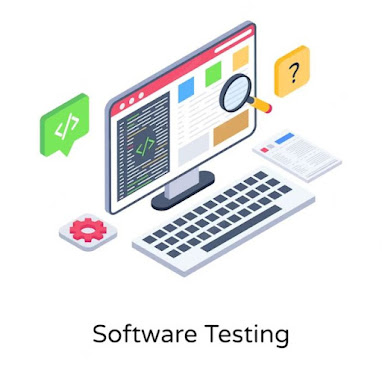Software Testing Training Institute in Noida - Master the Art of Quality Assurance
Introduction
Welcome to the fascinating world of software testing! In this ever-evolving era of technology, where software applications and systems are an integral part of our daily lives, ensuring their reliability and functionality is of utmost importance. This is where software testing plays a pivotal role.
Software testing is a vital phase in the software development process that focuses on evaluating and validating software applications to ensure they perform as intended and meet the expectations of end-users. By subjecting software to rigorous testing and scrutiny, testers can identify and rectify defects, ensuring a high level of quality and user satisfaction.
In this journey through the realm of software testing, we will delve into the intricacies of this indispensable practice. From understanding the objectives and significance of software testing to exploring various testing methods and tools, we will equip you with the knowledge to become proficient in this dynamic field.
Whether you are an aspiring software tester, an experienced IT professional seeking to enhance your skills, or a software developer interested in learning about the testing process, this guide is designed to cater to all levels of expertise.
Throughout this exploration, we will unravel the mysteries of manual and automated testing, black-box and white-box testing, performance testing, security testing, and more. We will also discover how software testing contributes to overall quality assurance, ensures a seamless user experience, and ultimately leads to the success of software products in the competitive market.
What is Software Testing?
Software testing is a critical phase in the software development process that involves evaluating a software application or system to identify and rectify defects, errors, or discrepancies between expected and actual outcomes. The primary goal of software testing is to ensure that the software functions correctly, meets the specified requirements, and delivers a high level of quality to end-users.
During the software testing process, testers execute the software using various test cases, data sets, and scenarios to verify its functionality, reliability, performance, security, and user experience. The process aims to detect any potential issues and ensure that the software meets the intended business and user needs.
Key Objectives of Software Testing:
Error Detection: Software testing aims to uncover defects, bugs, or errors in the software. These defects can range from simple coding mistakes to more complex design flaws that might lead to software malfunctions.
Verification and Validation: Software testing verifies that the software works according to its intended design and validates that it fulfills the specified requirements and user expectations.
Quality Assurance: Through testing, the software's overall quality is assessed, and any shortcomings are addressed before the product is released to the end-users.
Improving Software Reliability: Testing helps identify and eliminate potential issues that could lead to system crashes, data loss, or other undesirable consequences, thereby enhancing the reliability of the software.
Customer Satisfaction: By ensuring that the software functions as expected and is free from major defects, software testing contributes to customer satisfaction and enhances the reputation of the software development company.
Software Testing Methods:
- Manual Testing: Testers manually execute test cases without the aid of automation tools to evaluate the software's functionality, usability, and other non-automatable aspects.
- Automated Testing: This involves using automated testing tools to execute test cases and compare the actual outcomes with expected results. Automation testing is particularly useful for repetitive tasks, regression testing, and performance testing.
- Black Box Testing: Testers evaluate the software's functionality without knowledge of its internal code or structure. The focus is on testing the software's inputs and outputs.
- White Box Testing: Testers have access to the internal code and structure of the software and conduct tests based on the software's internal logic, paths, and control structures.
- Performance Testing: This assesses the software's responsiveness, speed, and stability under various load conditions to ensure it can handle real-world usage scenarios.
- Security Testing: The purpose of security testing is to identify vulnerabilities and weaknesses in the software's security measures and ensure protection against potential threats.
- User Acceptance Testing (UAT): In UAT, end-users or stakeholders validate the software's functionality to determine if it meets their requirements and expectations.
- Effective software testing is a crucial step in the software development life cycle as it helps minimize defects, reduces post-release maintenance costs, and ensures the delivery of a high-quality, reliable, and user-friendly software product.
Why Choose Our Software Testing Training Institute?
Courses Offered
Who Can Enroll?
- Fresh graduates looking to build a career in software testing
- Experienced professionals seeking to upgrade their testing skills
- Quality Assurance Engineers aiming to enhance their proficiency
- IT professionals shifting their career focus to software testing



Comments
Post a Comment